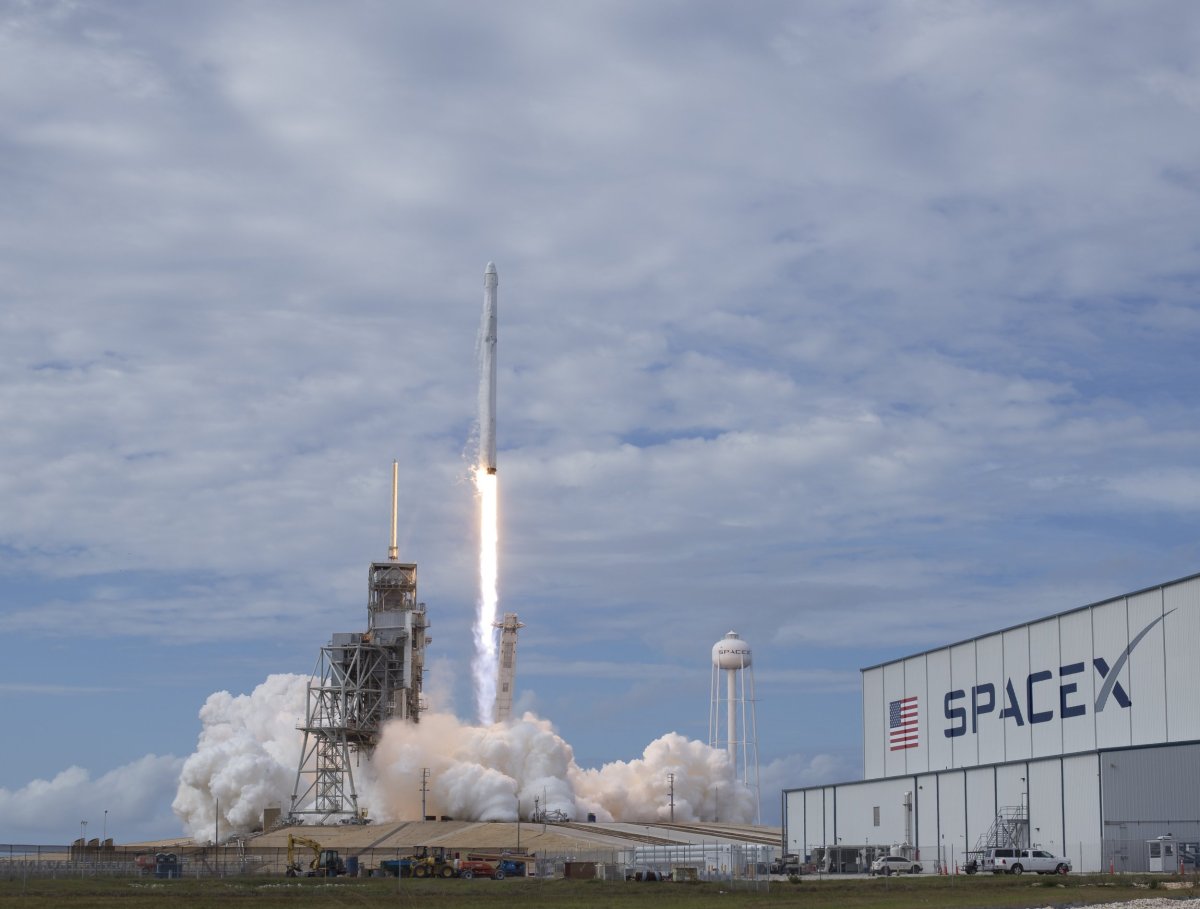A SpaceX Falcon 9 rocket launch on August 24, 2017 created a record-breaking shock wave that four times larger than the state of California. The launch also punched a temporary hole in the Earth's atmosphere, according to a new study.
Most rockets follow a curved trajectory after lift off to deliver their payload into orbit—usually at an altitude of around 120 miles high—which creates a V-shaped shock wave.
However, when the Falcon 9 took off from Vandenberg Air Force Base in California, it was able to take an almost directly vertical path towards its final destination because its payload—a Taiwanese Earth observation satellite known as FORMOSAT‐5—was unusually light.
This created an extremely rare, perfectly circular shock wave, the first such event recorded after a rocket launch. It was the largest rocket shock wave the team had ever seen, researchers from the National Cheng Kung University in Taiwan said in the study, which was published in the journal Space Weather.

In addition to the shock wave, the rocket also punched a temporary hole in the ionosphere, a part of the Earth's upper atmosphere which extends between around 37 miles and 620 miles in altitude.
This hole was caused by "rapid chemical reactions of rocket exhaust plumes" and charged particles in the atmosphere, the researchers wrote.
Charles Lin and his team from the National Cheng Kung University used computer modelling to simulate the rocket launch and its effects on the upper atmosphere. This type of analysis could have important implications in the near future, as the cost of putting satellites into orbit falls and the number of launches increases.
"Understanding how the rocket launches affect our upper atmosphere and space environment is important, as these anthropogenic space weather events are expected to increase at an enormous rate in the near future," the researchers wrote.
Uncommon Knowledge
Newsweek is committed to challenging conventional wisdom and finding connections in the search for common ground.
Newsweek is committed to challenging conventional wisdom and finding connections in the search for common ground.
About the writer
Aristos is a Newsweek science reporter with the London, U.K., bureau. He reports on science and health topics, including; animal, ... Read more
To read how Newsweek uses AI as a newsroom tool, Click here.








